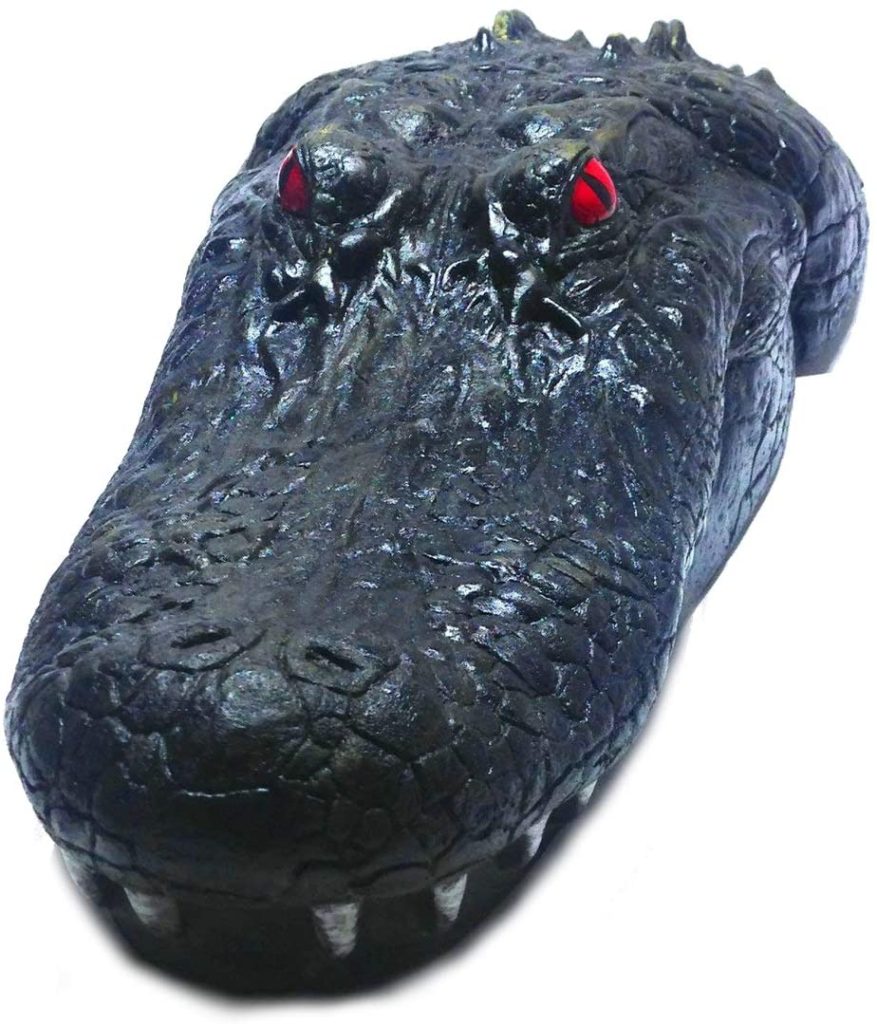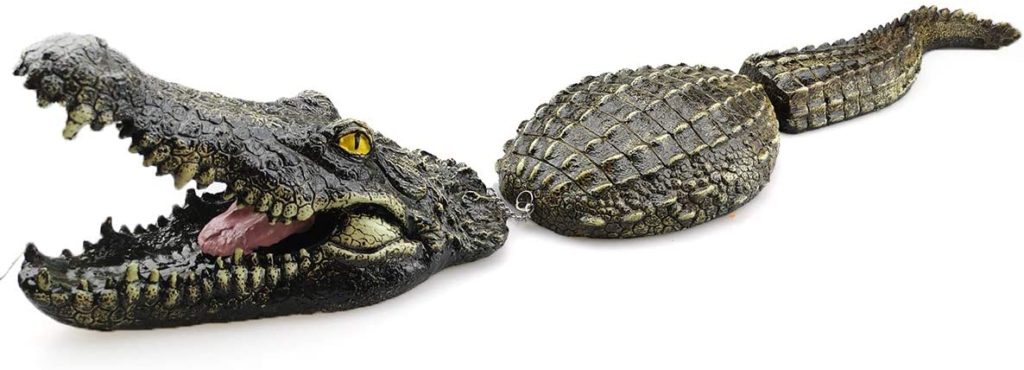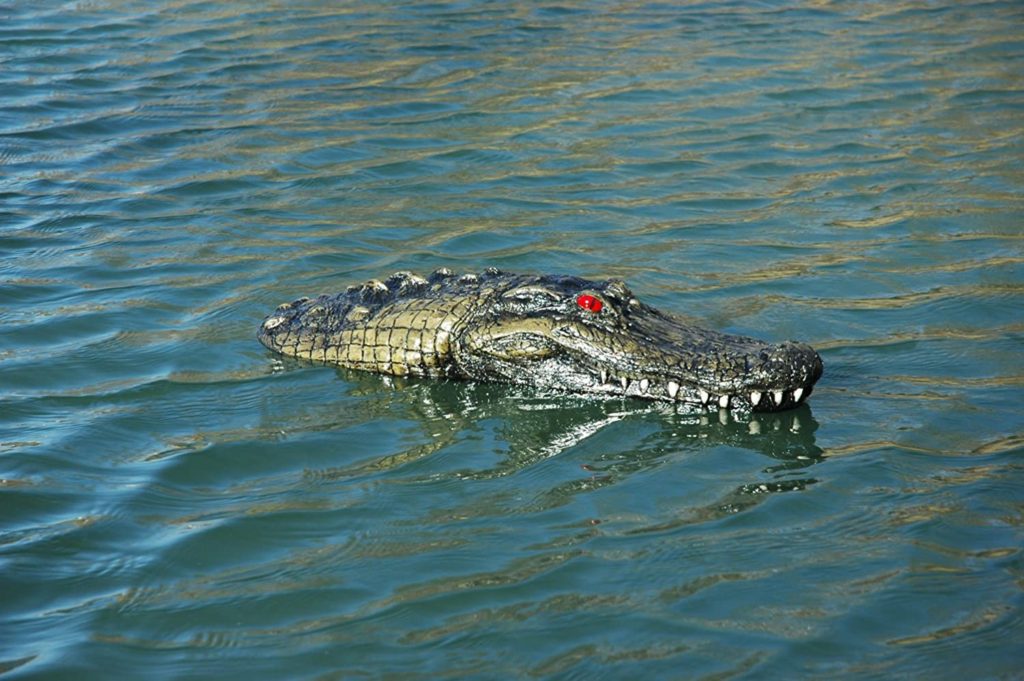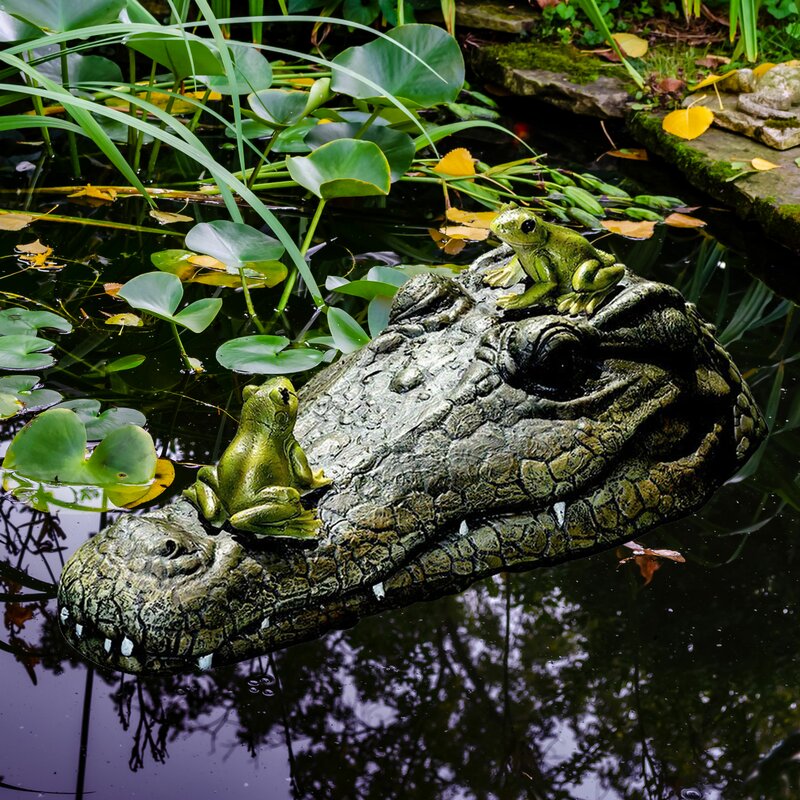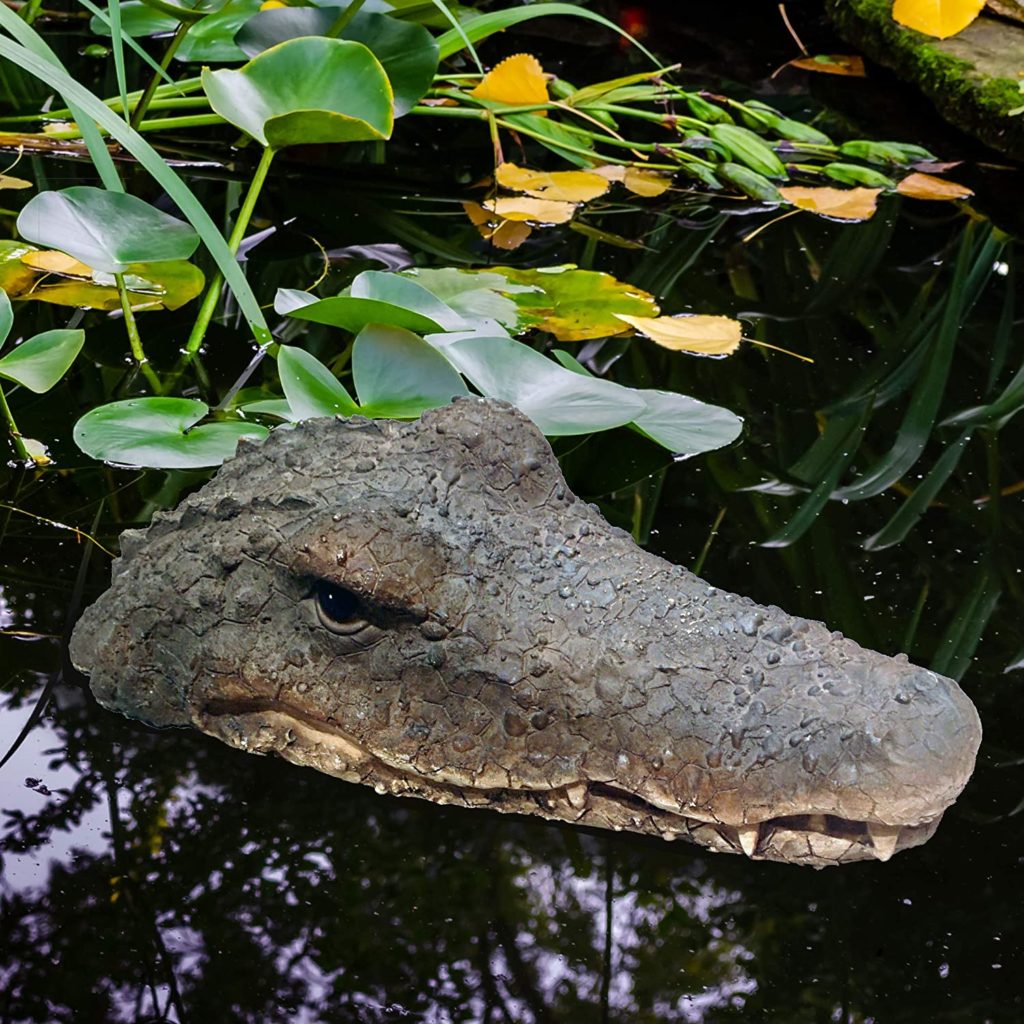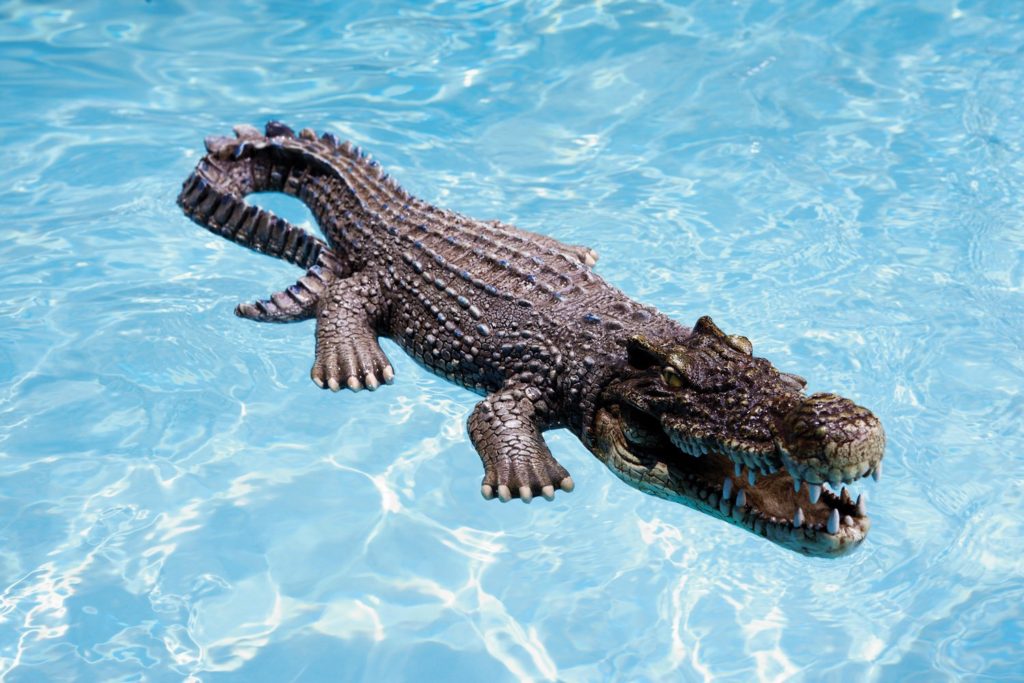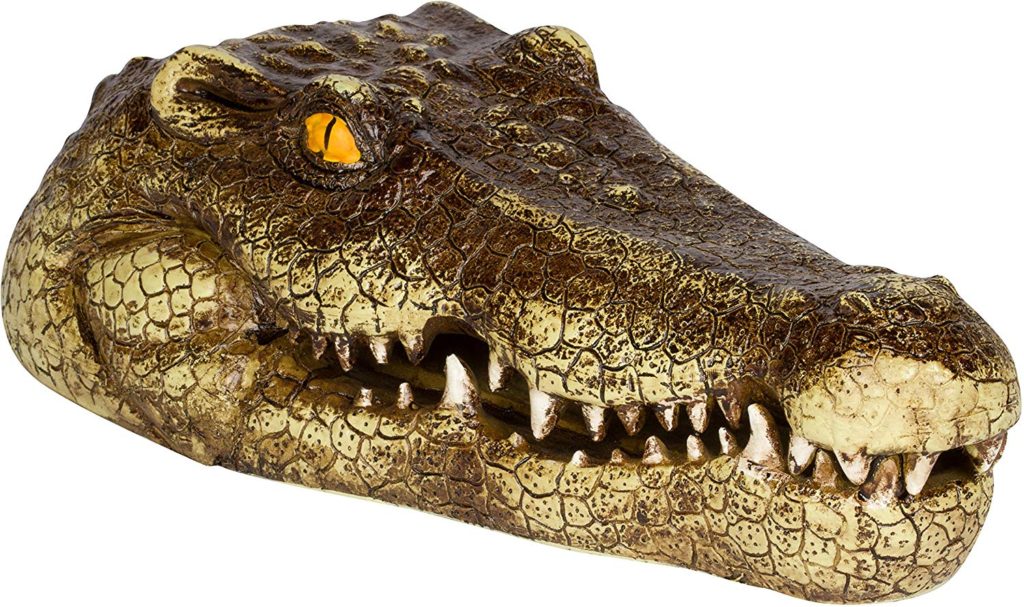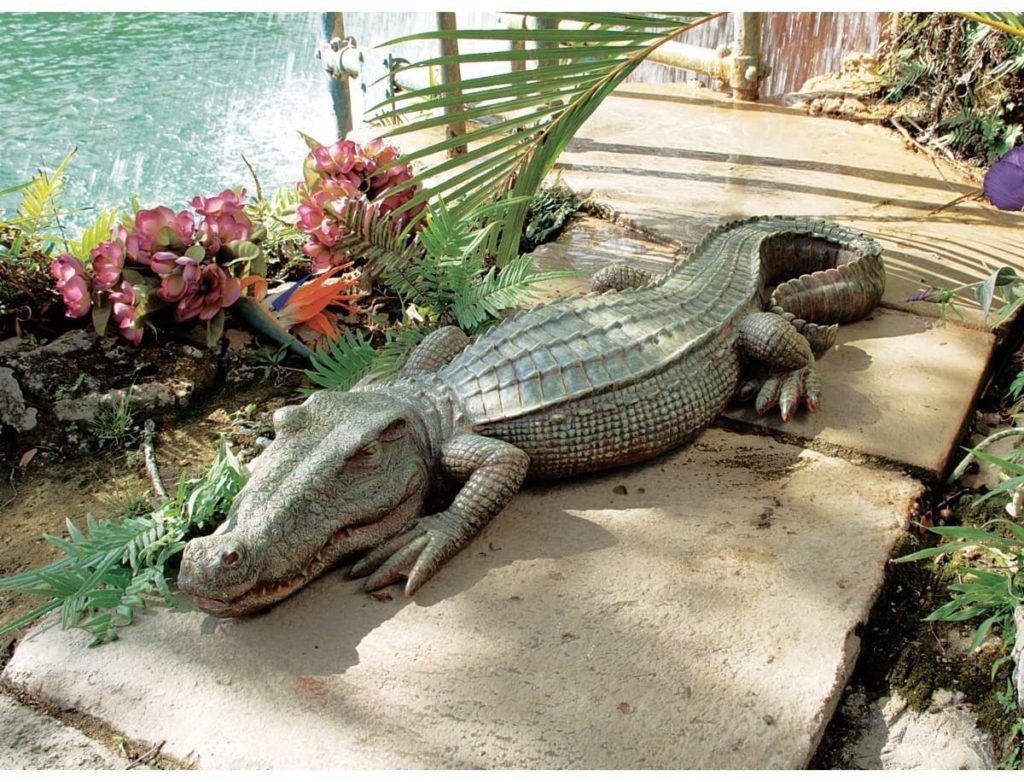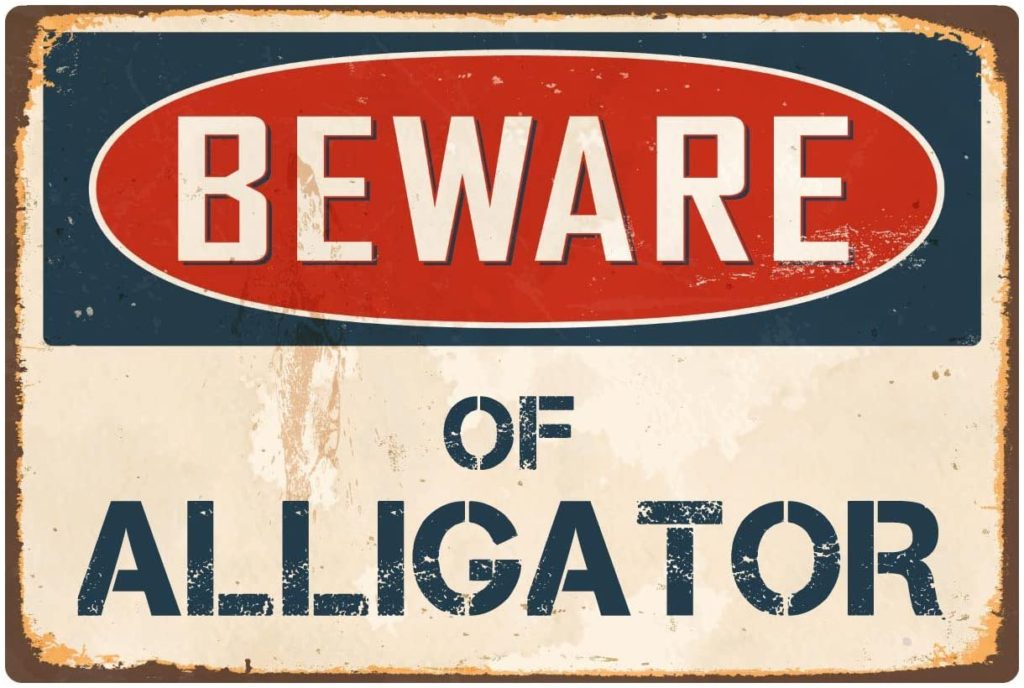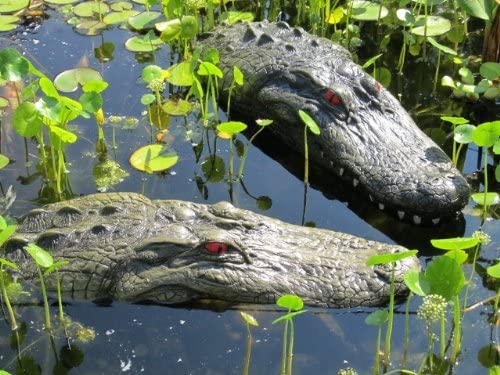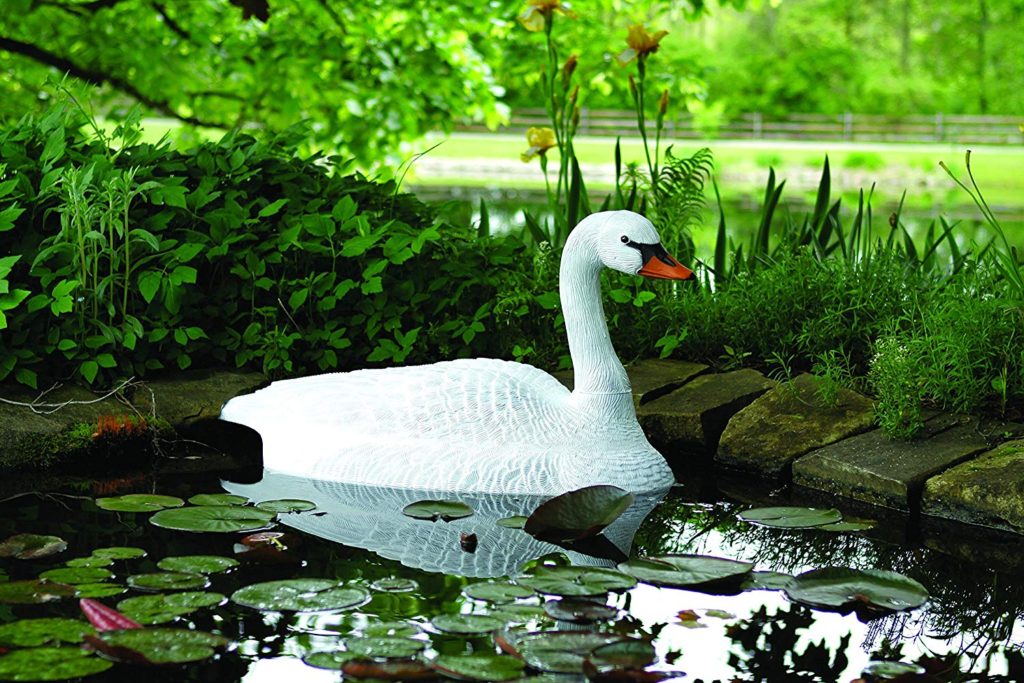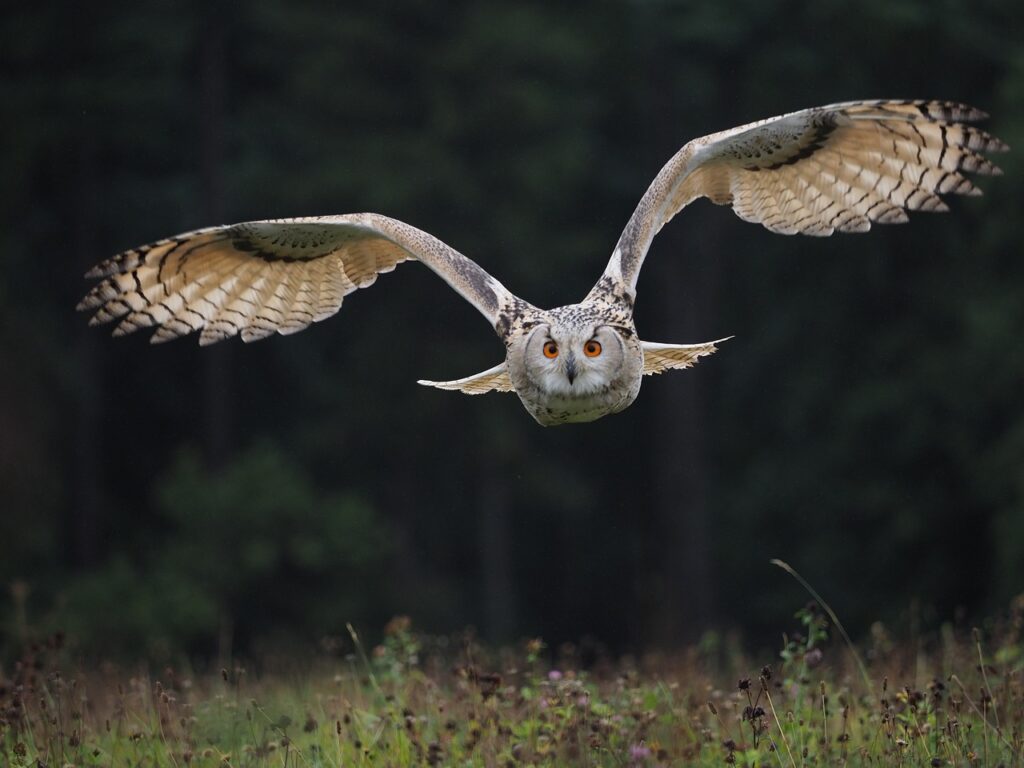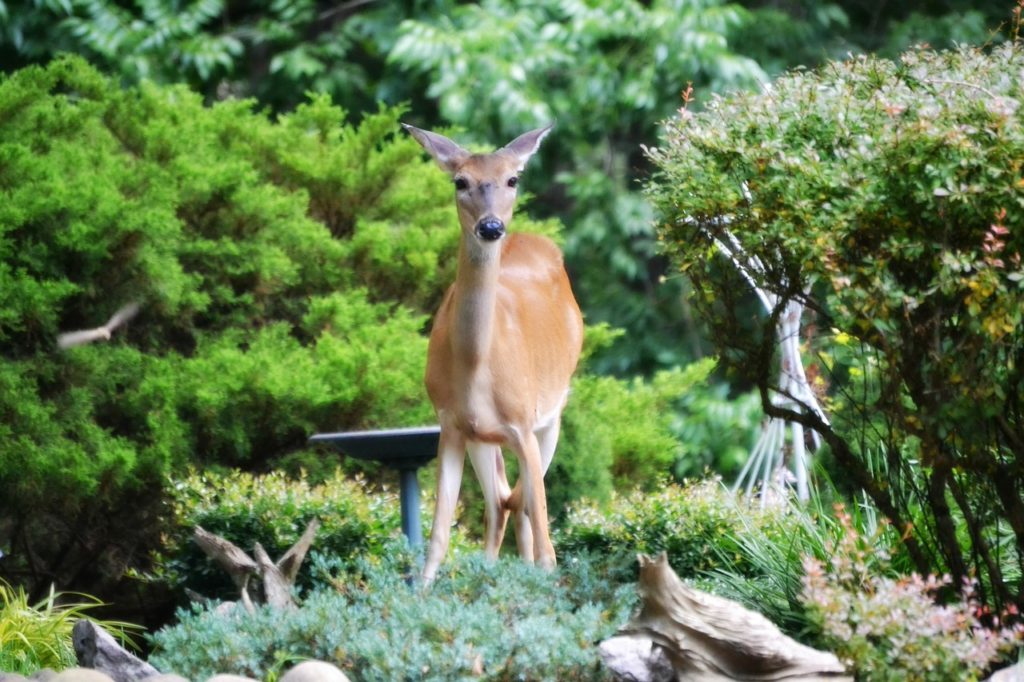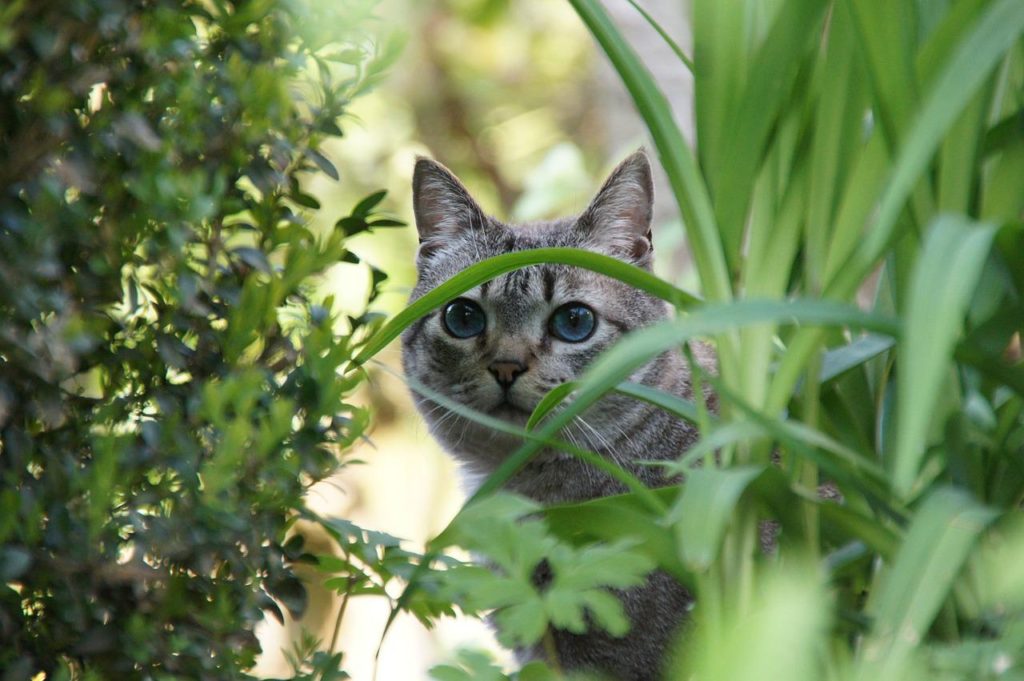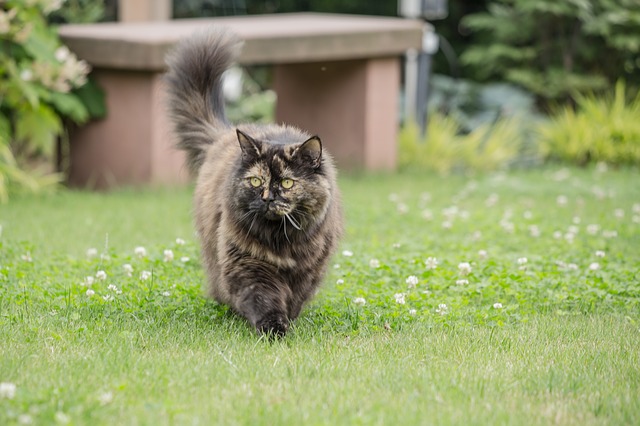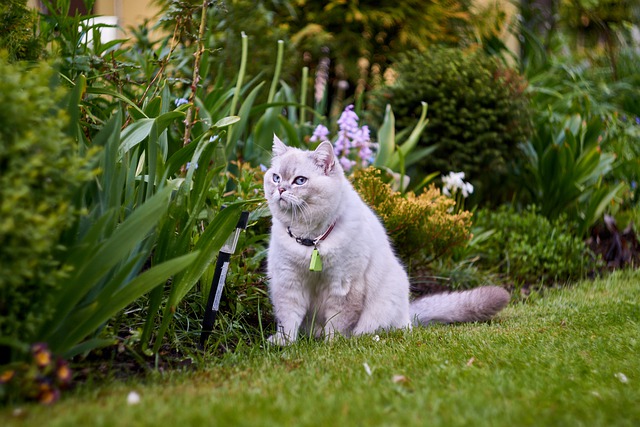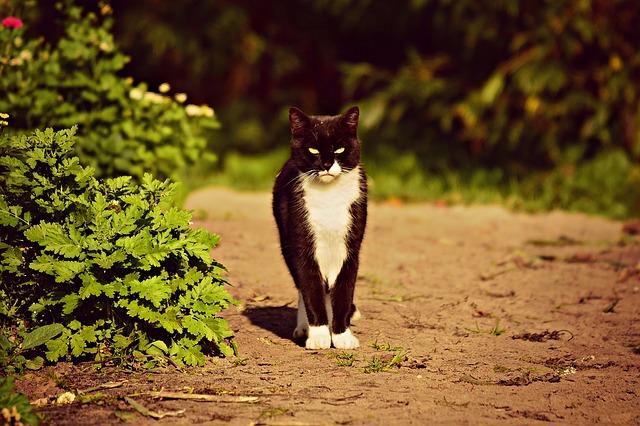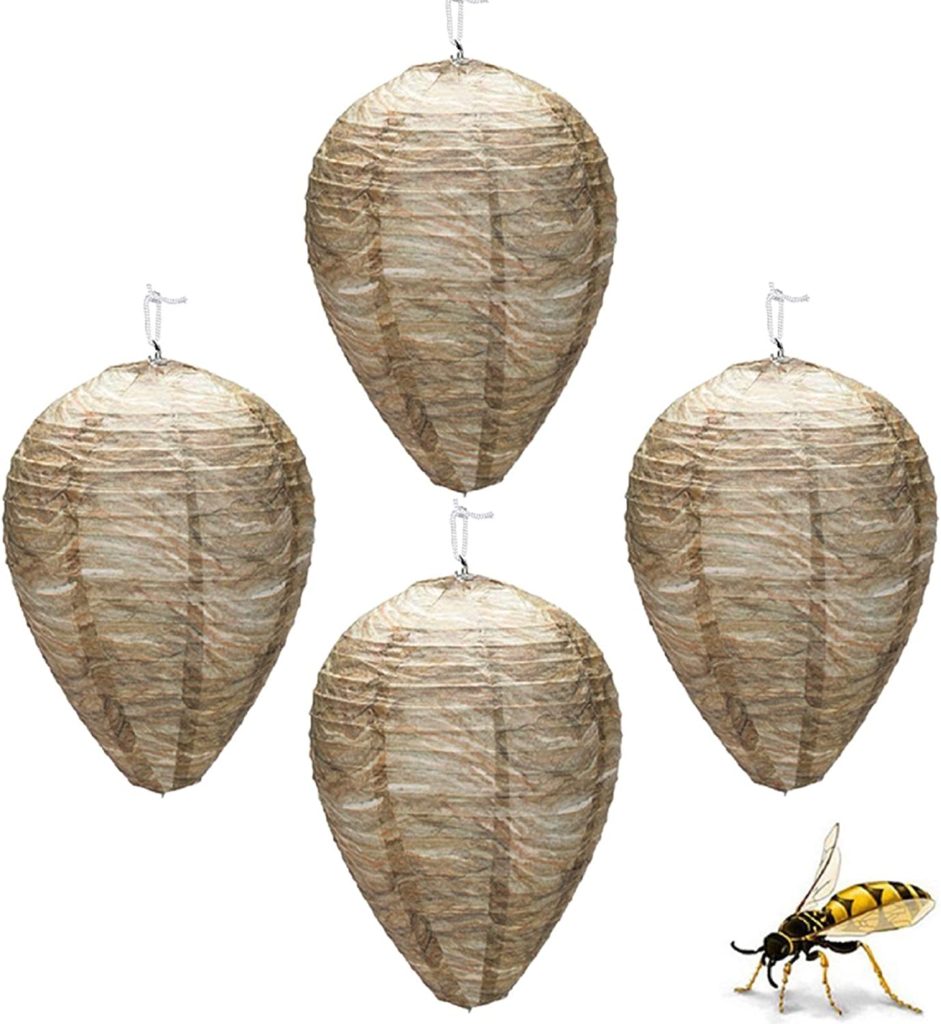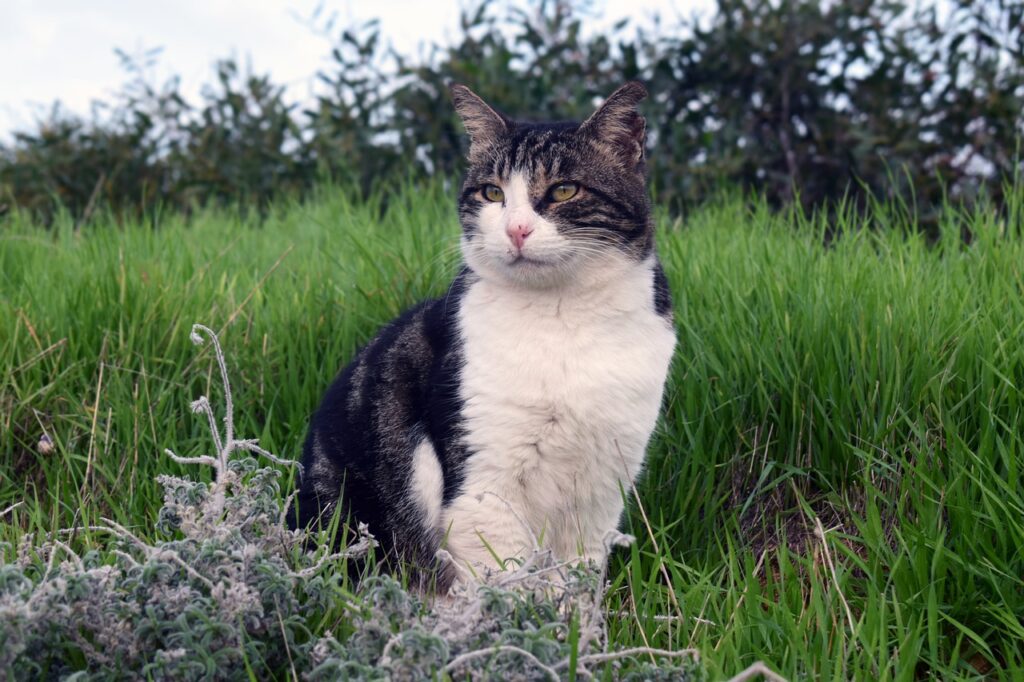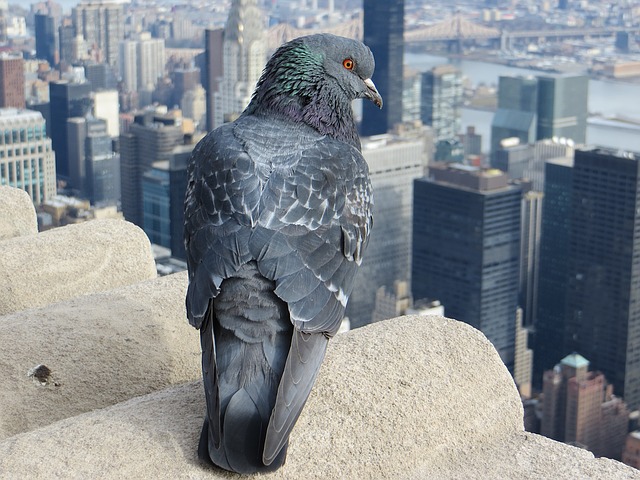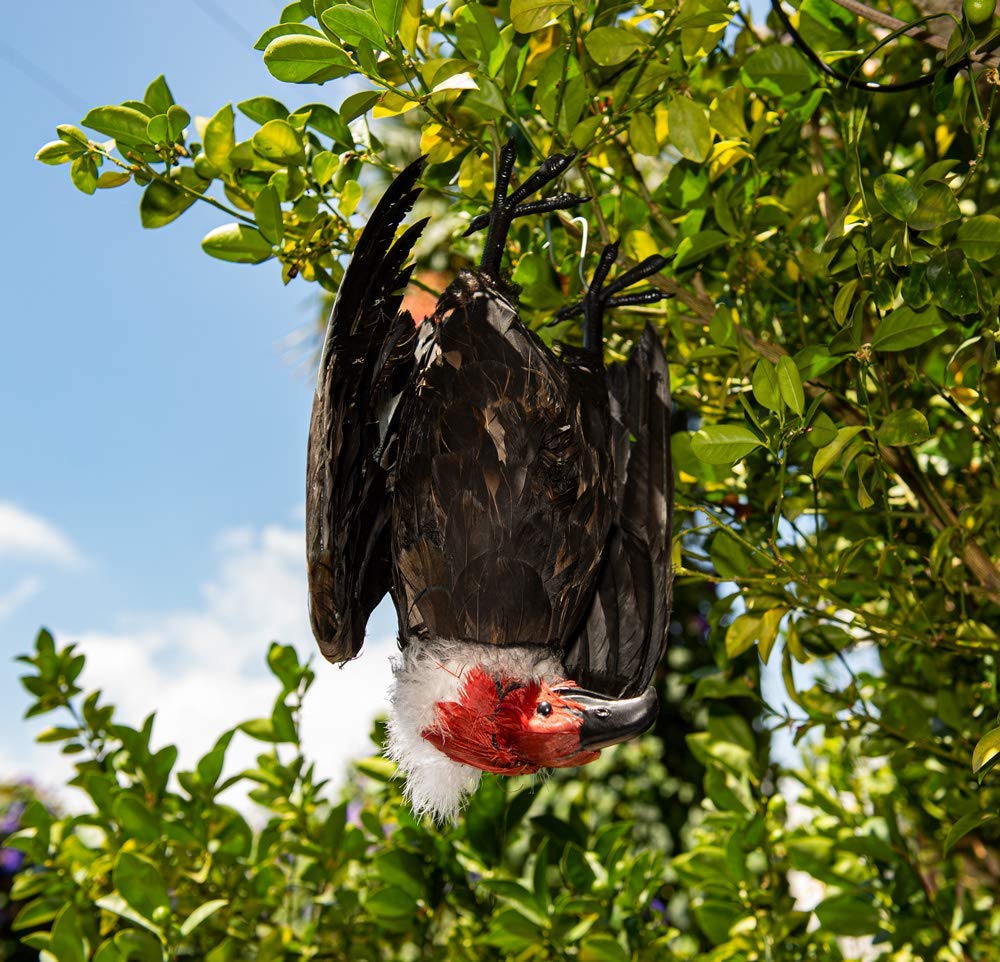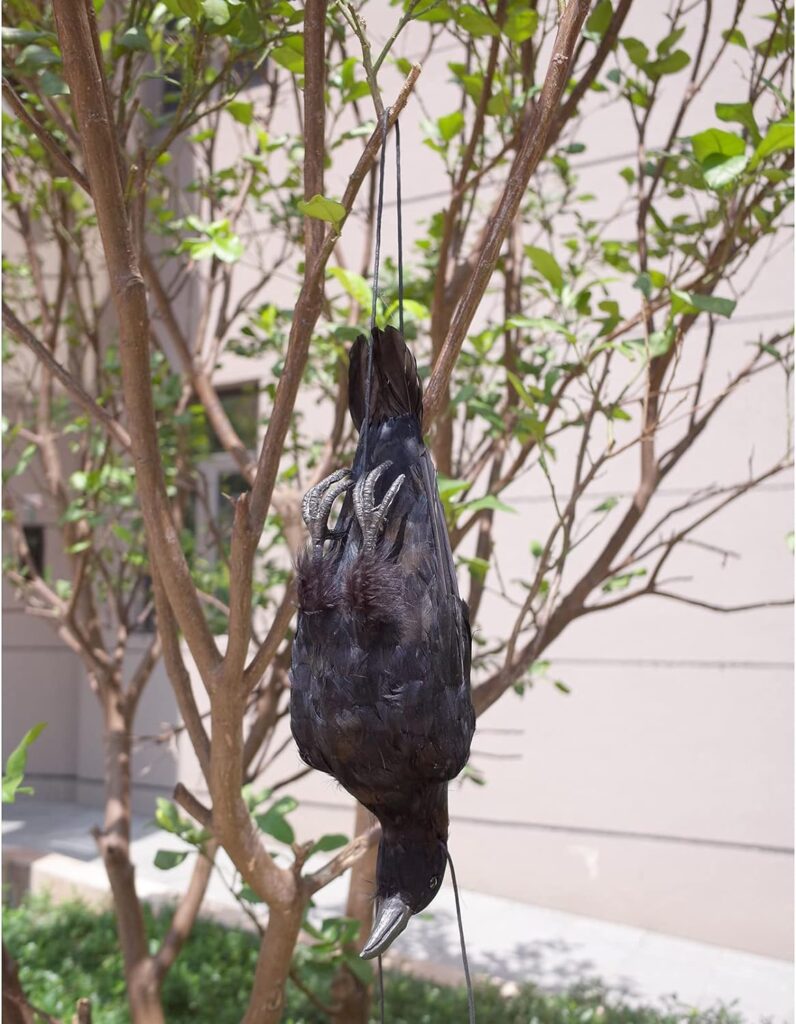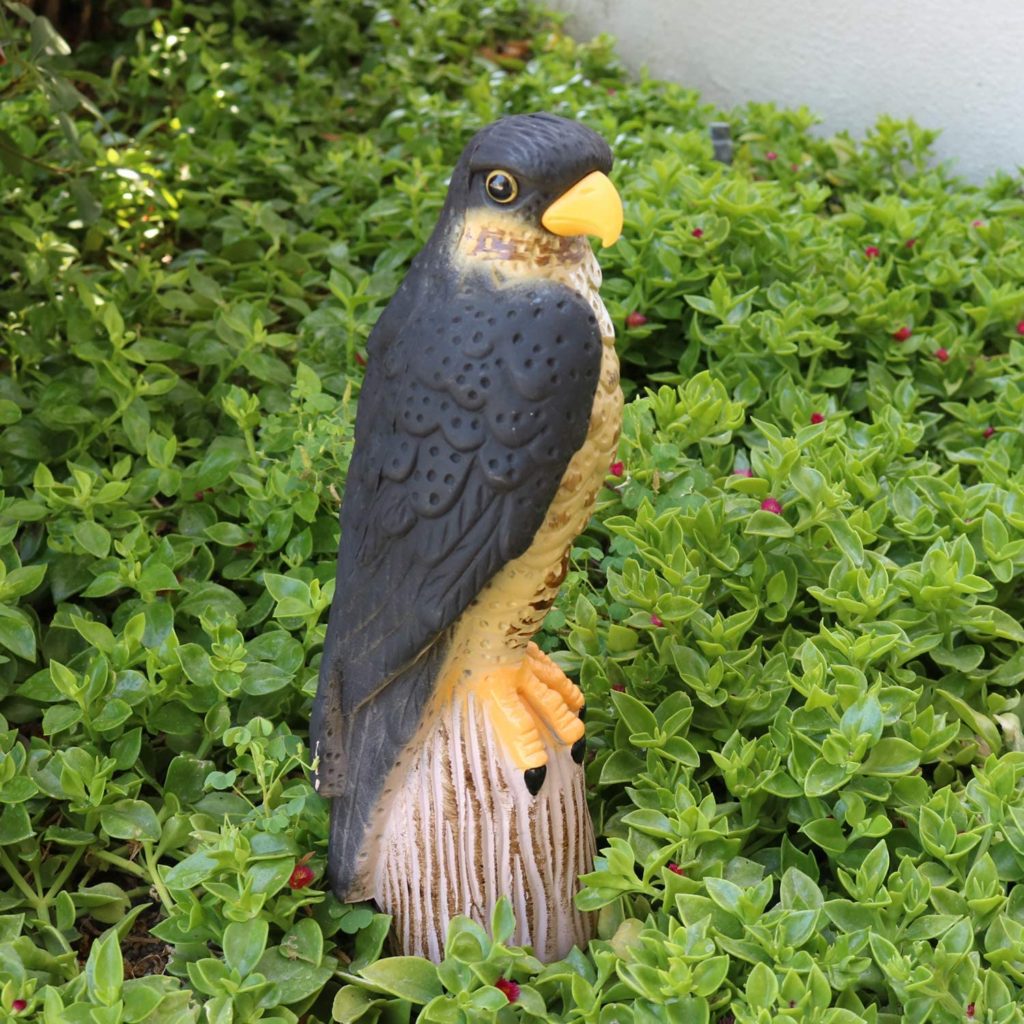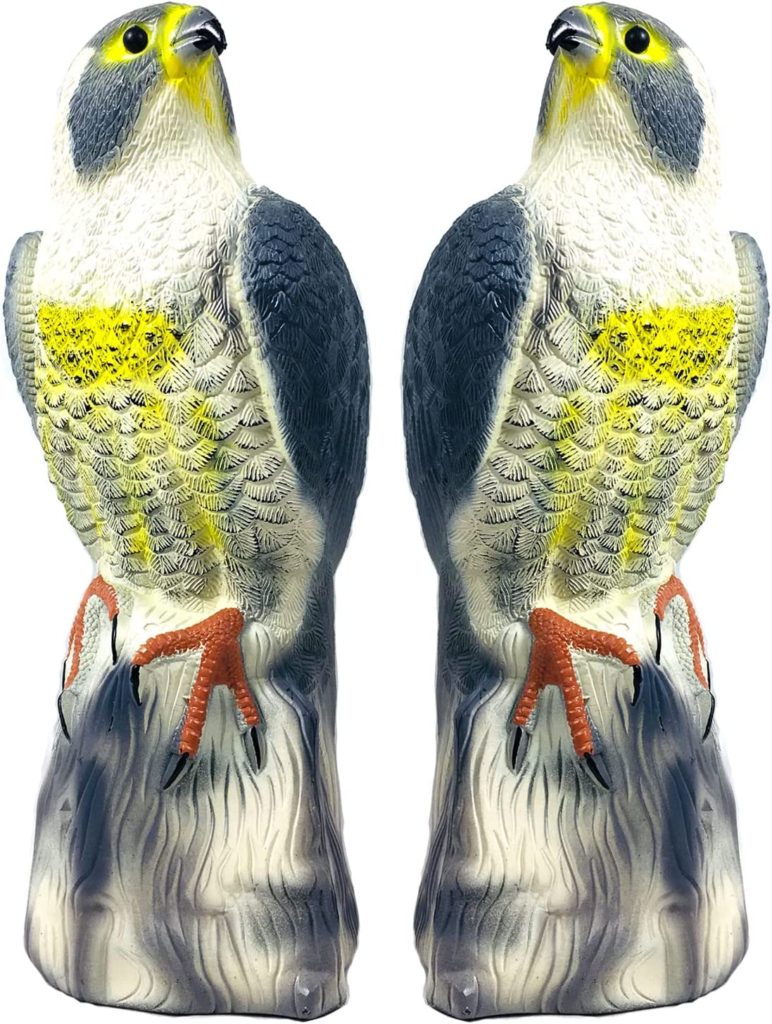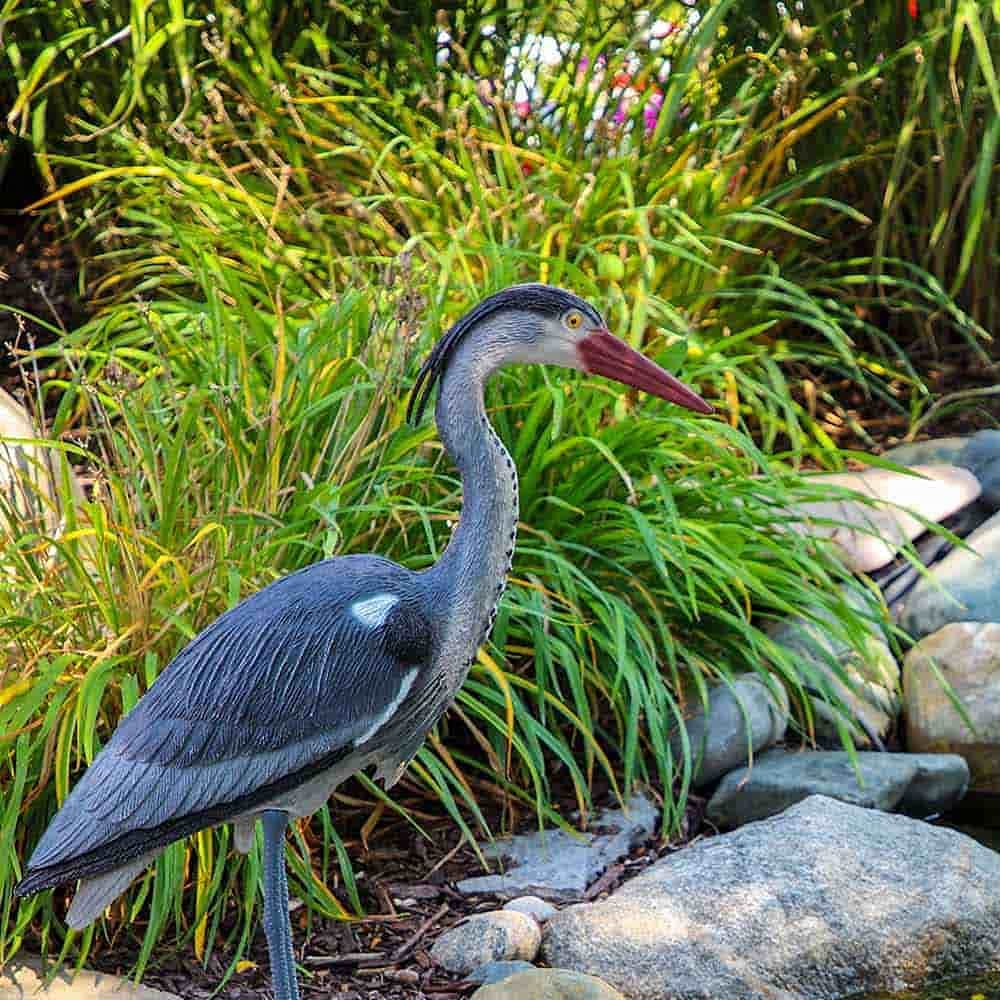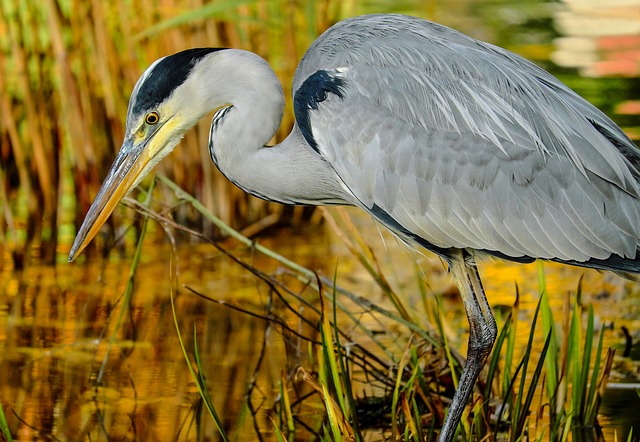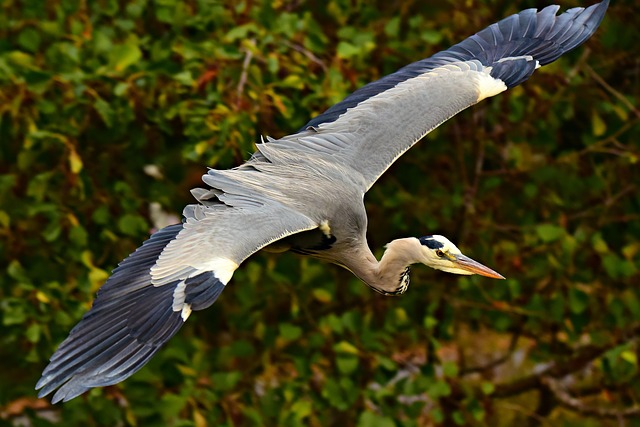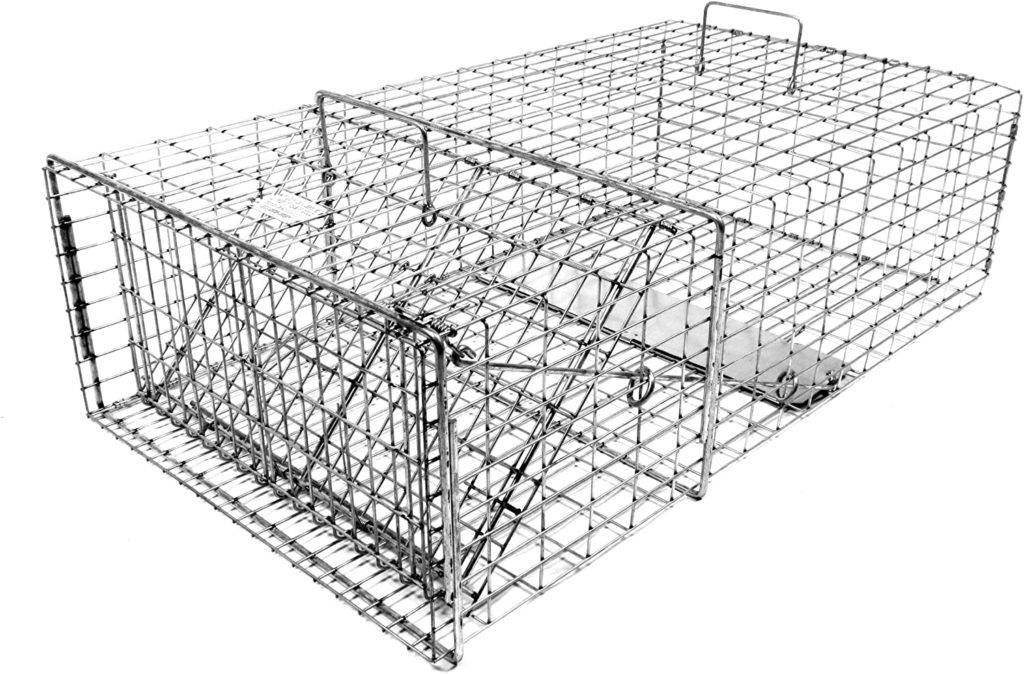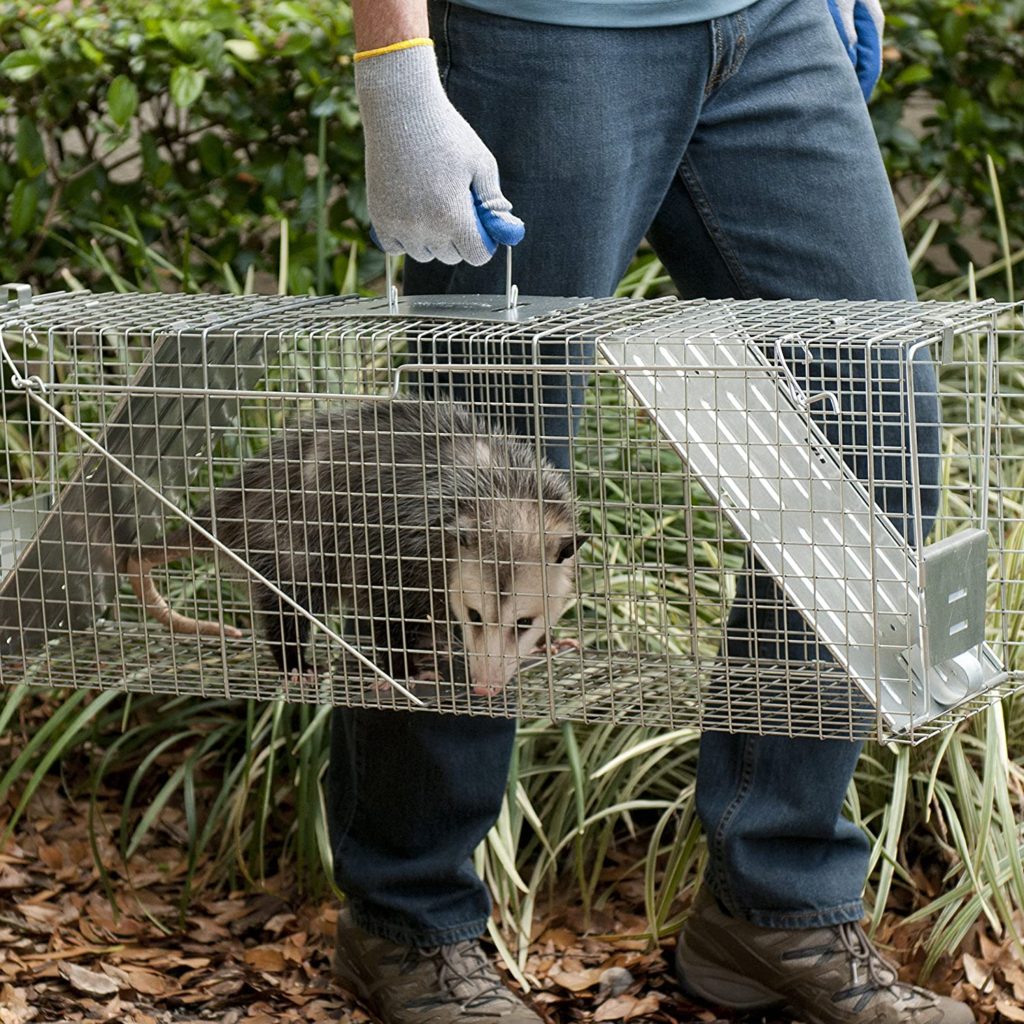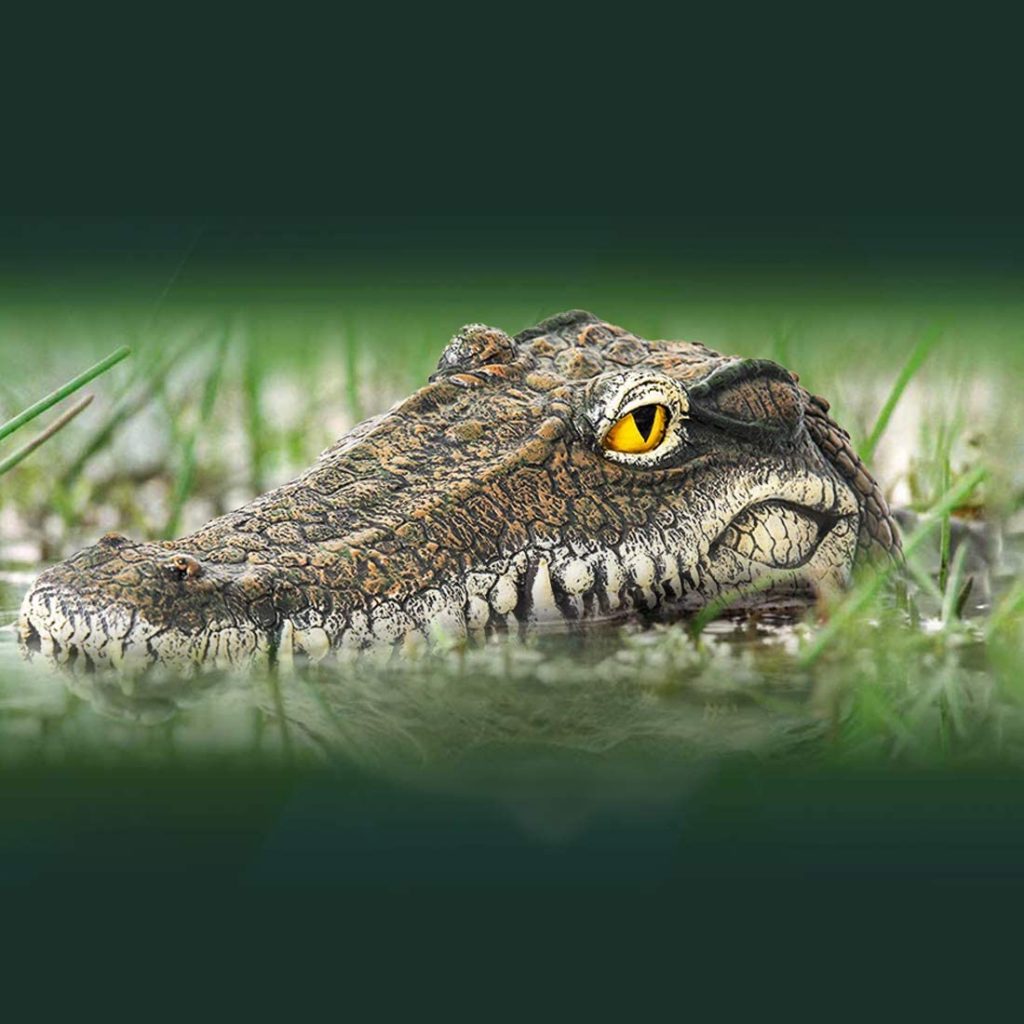
Trying to keep predators and pests out of your pond or pool can seem like an impossible task. It can be time-consuming, frustrating, and the damage they cause can be costly and messy. With an alligator decoy, you’ll be able to use their instincts against them in a way that’s fun, safe, and effective.
Your Very Own Gator Guard On Duty
The alligator is at the top of the food chain which makes a decoy gator the perfect choice for scaring away unwanted animal guests. Luckily, the fear of gators is instinctual and not based on actually having encountered them before. So even if you live in a state or region where there are no alligators the local wildlife will respond by keeping away.
And because they are simply a deterrent there is no harm done to the animals. Decoys are typically made from plastic, foam, or resin so that they can float and handle being left outdoors in the water year-round. They are also painted to look very realistic and some will even fool your friends.
What Animals Do Alligator Decoys Keep Away?
Decoys are well-known for deterring many different backyard predators and pests. They can be used to keep away animals such as:
Predatory Birds
There are a wide range of different bird species which love to eat fish. Unfortunately, expensive Koi, goldfish, and other aquatic pets are often easy targets especially when they are in confined spaces. By adding a decoy you will make sure there are no more free fish dinners.
Herons, cranes, egrets, cormorants, eagles, hawks, owls, and kingfishers among many others will all quickly learn to keep clear of your property. Typically they won’t even land and if they do it will only be until they spot your gator lurking in the water.
Ducks And Geese
While these won’t eat your fish they can be very loud and make a huge mess wherever they land. And yes, that means a lot of poop which will end up in your yard, pond, pool, or on your deck or dock. Fortunately, alligator decoys scare ducks and geese so you can save your voice and won’t have to worry about cleaning up after them anymore.
Raccoons
Easily one of the most destructive of all pests, raccoons can also carry a host of parasites some of which can be passed on to humans. They will eat just about every form of life in your pond from the plants all the way up to the fish. Raccoons like to clean their food in the water. So if they’ve raided your trash cans don’t be surprised if they decide to rinse off the garbage in your pool first before they eat it.
Since they prefer to poop in the water as well they will also use your pool or pond as their own personal toilet. But because they are afraid of large predatory reptiles with an alligator decoy raccoons will quickly find a new place to chow down and do their business.
Other Pests And Pets
Decoys may sometimes keep other types of animals away from the surrounding area too. Prey animals such as groundhogs and squirrels can be quite wary once they believe there’s an alligator around. And some cats and dogs, but definitely not all, will also keep their distance. Deer on the other hand aren’t typically afraid of alligator decoys which is something many property owners like.
Best Places To Use Your Alligator Decoy
You can use a decoy in just about any body of water that you would like to keep pests and predators out of and away from. They are ideal for ponds of all sizes and types whether in the garden, on a fish farm, or at the golf course.
For both swimming pools and hot tubs, they are a popular choice and will also help to keep animals away from your deck and the surrounding area. If your property borders a lake, river, or canal you can use one there too. Placing a decoy in close proximity to a private dock is also a smart choice to keep it from becoming a hangout and poop station for waterfowl.
Not Your Average Décor
One of the best features of decoys is that they are always a fun conversation piece. In fact, realistic alligator decoys are often purchased simply to use as a unique piece of pond décor. Some consumers even choose to use them in their garden as well.
Having your very own gator that is also totally safe to be around, can give you the chance to have some harmless fun scaring unsuspecting, friends, guests, and gardeners. If you’ve decided to transform your pool or pond into a swampy lagoon for Halloween an alligator decoy is also a very popular choice to use as your resident swamp beast.
Types of Alligator Decoys
There are a few different varieties to pick from and what you choose will really depend on what you like.
Floating Alligator Heads
When a gator is in the water and motionless or moving slowly, all that is visible is usually its head. Because of this fact, you don’t actually need a life-size alligator decoy just a heat will do. When animals see a head they assume the rest of the body is underwater.
Heads can range in size and some can give the appearance of being quite a big gator. And since there is no body to go along with it, you can get the look of having a large gator even if you only have a small space. Alligator decoy heads are designed to move around for extra realism.
There isn’t a motor instead they float freely around and are moved by the breeze, current, pond filter, waterfall, etc. They will however come with a screw eye underneath so that they can be anchored to something. (Check out the section below for anchoring tips.) For an extra bit of fun, some people like to mount their heads on top of an r/c boat. With your DIY remote control alligator decoy, you can actively chase waterfowl away or give friends a good fright.
Partial Body Decoys
For a more realistic swimming action, a floating alligator decoy that has a head, midsection, and tail is another way to go. When real a gator is swimming these are the three parts you will usually see above the water. So with this type, it really seems as if there is a whole body below the surface.
The parts are all connected by a chain so that the midsection and tail follow the head. This also allows each part to move independently which adds an extra touch to help fool sharp-eyed critters. Like with a head decoy, these can be allowed to float about or can be anchored down. By anchoring them in an area with moving water you will get the full effect of the tail and midsection moving to create the appearance that it’s swimming on its own.
Full Body Alligator Decoys
A full-bodied gator is also a choice. These are made so that the entire body floats above the water and is completely visible. This is of course lets animals know at first glance or when flying over it from above what type of beast they are looking at. While some models may be one single piece others are made up of multiple sections attached by a chain to help add a more lifelike appearance in the water.
Even though they do show the whole body this variety isn’t typically life-size. They will be at least a few feet in length though. Because smaller ponds may not have the space to handle a medium or large floating alligator decoy without looking too cramped these are usually placed in swimming pools or bigger size ponds and left to float. Unlike decoys that only show parts of the body these are designed so that they can also be used on land.
Alligator Decoy Features To Consider
Some decoys include features to help them look more menacing and real to other animals. That’s why you will see some models with their mouths wide open showing all of their teeth. However, there’s no proof that this will actually spook them any more than a decoy with a closed mouth since a gator’s teeth are still clearly visible even when closed.
Some models may also include battery-powered eyes that glow red which are meant to mimic the red eye shine of real gators in low light conditions. Others may have reflective red eyes or eyes that have been painted red. A lot of people find these to look realistic while other consumers feel that black eyes look more natural. It’s really a matter of personal choice.
Stick With A Gator Or Go With A Croc
When shopping you may notice that while the majority of decoys are designed to look like the American alligator some are actually modeled after crocs. Crocodile decoys come in the same varieties and with the same features but there may be small differences in the coloration and looks. For example, gators will have more rounded teeth.
Really what you choose is a matter of preference since animals can’t tell them apart and are just as scared of both. Many people don’t realize that there are actually crocodiles in the United States as well. Although unlike the alligator the American crocodile is only found in certain areas of southern Florida and has a very limited population.
Alligator Statues Can Work Too
If you are a true fan of alligators and crocodiles you might prefer an actual alligator statue. You can often get away with using one as a deterrent to predators and pests even though that’s not its intended function. While they aren’t normally made to float in the water and will usually cost more than a decoy they can look very realistic. By placing one in the yard or on the deck near the edge of a pond, pool, or body of water you may be able to fool critters into thinking it’s sunning itself, relaxing, or waiting for prey to come its way.
You should choose a statue that’s real-looking, shows the full body, and is at least medium to large in size for the best chances of working. If your statue does not end up getting the job done at least you’ll end up with a unique piece of alligator garden art that’s sure to get a lot of attention from your human guests.
Tips For Anchoring Your Gator Decoy
If you have an alligator head decoy or partial body model you may want to anchor it. This can be very important if you are placing it somewhere that it could be swept away or even lost. Anchoring your gator will keep it confined to a specific area and if you have moving water it will still allow the decoy to move around but just in a confined space.
Most people will use a length of fishing line which is attached to the screw eye on the gator at one end and something that’s heavy enough to keep it in place on the other. You could use a rock, brick, fishing sinker, ceramic mug, or a couple of washers as an anchor.
Usually, you’ll want to cut your fishing line so that it is a bit longer than the actual depth of where you will be using it that way it has some space to, “swim around.” A trick you could also use is to actually attach it to your automatic pool cleaner which will have it moving all over your pool. By anchoring your decoy close to filters or other underwater items it can also serve as a marker which can be a big help too.
Easy Fixes
Luckily decoys are very easy to fix if they become damaged for any reason. If yours’ begins to sink all you’ll usually need to do is seal up any cracks or seams with a marine caulk. For a gator decoy that has started to lose its youthful looks, a fresh coat of acrylic paint will have him looking like new in no time. You may also want to change the eye color with a little paint if you purchased one with red eyes and end up preferring black or vice versa.
Multiple Alligator Decoys For Extra Protection
If you have a larger size body of water you will most likely want to use multiple decoys. But just be sure to spread them out. And when you have several different areas you need to keep protected such as a hot tub and pool for example placing one in each will do a much better job.
Of course, you can always add a couple in smaller spaces for extra emphasis as well. A handful of floating alligator decoys will look like a gator pit and be sure to be avoided. You might even want to use different types together.
Other Decoys Options To Use With Your Gator
While gator decoys are effective the vast majority of the time, every once in a while you may encounter animals that may seem to be extra brave or totally missing some of their necessary survival instincts. When this is the case you can always add other types of decoys in addition to your alligator. Floating swan decoys for example are very helpful for keeping geese and ducks away since they know swans are so territorial.
Herons too are very territorial, especially with other members of their species. So a heron decoy will actually help keep other herons away. A coyote or fox decoy will not just work for birds but also deter raccoons and other small animals.
And don’t overlook inflatable snakes which can be used on land or to float in the water and keep your gator company. They are very effective for birds of all types particularly ones who love to use decks as their toilets.
With your alligator decoy keeping watch for you around the clock, you won’t have to worry about any missing fish, cleaning up any messes, or dealing with any damage. Your gator will have an important job so don’t forget to give him a name and treat him right!
Start Shopping for Alligator Decoys!
What Smells Do Crows Hate?
Crows can be quite a nuisance. And one natural way to deter them is by using scents that they dislike. But what smells do crows hate? Read on to find out! Pest Crows Crows are often considered to be pests. In agricultural areas, they are well-known for causing crop...
How To Get Rid Of Owls In Your Yard
While owls are amazing creatures and can help to function as natural pest control, they are not a bird everyone wants on their property. Fortunately, when it comes to how to get rid of owls in your yard there are quite a few things you can do to deter them. Here’s...
How To Make Irish Spring Deer Repellent
Irish Spring isn't just a soap that has a pleasant and energizing fragrance. It's also an ingredient that can help keep your outdoor space healthy and inviting. By making your own Irish Spring deer repellent you can help keep nuisance deer at bay. Here's what you'll...
The Best Cat Deterrent Plants
Cats are adorable and beloved creatures. That doesn't mean, however, that they belong in your garden. The last thing you want is to see felines eating your favorite plants, or using your garden as their personal toilet. So here are some of the best cat deterrent...
Do Coffee Grounds Deter Cats?
You may find your garden and yard smelling awful because the neighborhood cats have decided to treat the area as their giant litter box. Not only can it really stink but it’s unsanitary too. Cats may also be tearing up plants and digging out seeds and bulbs. You may...
Will Coffee Grounds Keep Cats Away?
If you find that the neighborhood cats are treating your garden and yard like a personal litter box, it is time to use coffee grounds to keep cats away. You may wonder, "Will coffee grounds keep cats away?" The answer is yes, they will. This is not a myth or an old...
Cats And Coffee Grounds
For most of us, our first cup of coffee in the day is like a drink of ambrosia. Not only does it smell and taste delicious but it has many other advantages. Cats and coffee grounds do not go together. And this is great if you are having trouble with cats littering up...
Everything You Need To Know About Fake Wasp Nests
Buy on Amazon Wasps are aggressive pests that have a painful and potentially dangerous sting. Luckily you don’t have to risk serious injury in order to keep them away. A much easier option is to use a fake wasp nest to deter them. And here is everything you’ll need to...
How To Use Orange Peels To Deter Cats
Are you tired of neighborhood cats wreaking havoc in your garden or yard? What if we told you that there is a simple, natural, and effective solution to repel them? Enter the humble orange peel to deter cats, a surprisingly powerful DIY cat repellent that has been...
The Complete Guide To Bird Cannons
Buy on Amazon Birds and other pests can be a huge nuisance for farmers, businesses, and homeowners in rural areas. They can cause an incredible amount of damage, a loss of income, and also be a major safety concern. A bird cannon is a cost-effective and highly...
Types Of Pest Birds
Pest birds come in a variety of shapes and sizes. However they all have one thing in common: they can be a real nuisance to us humans in one way or another. The following are the most common types of pest birds you’re likely to encounter. European Starling The...
Dead Vulture Decoys: The Beginner’s Guide
Buy on Amazon Vultures in flight can look elegant as they soar high above. However, these large birds can be a big problem once they’ve decided to land on your property. A dead vulture decoy is one of the most efficient tools for deterring these pests. And here...
The Total Guide To Dead Crow Decoys
Buy on Amazon Whether you live in the country, suburbs, or even the city, dealing with pest crows can be a significant problem. One of the most effective methods for controlling these nuisance birds is using a dead crow decoy. This all-in-one guide will cover...
Falcon Decoys: Everything You Need To Know
Buy on Amazon Dealing with the damage and mess caused by pest birds is never fun. However, you actually don’t need to spend much time or money in order to get rid of birds and other pest species. With the help of a falcon decoy, you can take advantage of their natural...
All About Hawk Decoys
Buy on Amazon Pest birds can make a huge mess and cause a lot of expensive damage. To help keep birds and other pests away, a hawk decoy is an effective and safe solution. So here is your complete guide to them. Why A Hawk Decoy? Hawks are one of the most widespread...
The Complete Great Blue Heron Decoy Guide
Buy on Amazon A hungry heron can easily make a meal out of expensive pond fish. One of the most effective methods for protecting your pond from these smart birds is with a great blue heron decoy. Here is your complete guide to them, with all the info and tips you’ll...
How To Keep Blue Herons Out Of Your Pond
Great blue herons are one of the biggest problems that pond owners face. These birds are not only smart but can easily catch and swallow large numbers of surprisingly big pond fish. Therefore you’ll need to know how to keep blue herons out of your pond in order to...
How To Deter Herons From Your Pond
Herons are designed by Mother Nature to hunt fish. And unfortunately for pond owners, they often find pond fish to be an easy meal. So in order to protect your fish, you will want to know how to deter herons from your pond. Alligator Decoys Alligators are natural...
How To Get Rid Of Snapping Turtles In The Pond
Buy on Amazon While there are some turtle species that can live peacefully in backyard ponds snapping turtles are typically not one of them. Not only are they carnivorous but also potentially dangerous. However before you try and catch one, you’ll want to know how to...
Live Animal Cage Trap Tips For Success
Buy on Amazon Pests can be a major hassle; they can cause costly damage, make a mess, and can even spread disease. Many homeowners choose to trap pests on their own using what are known as live animal cage traps. These traps are totally humane and allow you to safely...
